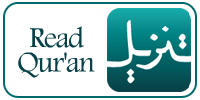Prayers (Salat): Five times every day, Muslims from all parts of the world face towards the Ka‘bah located in the city of Makkah and perform their prayers.
The first prayer is in the morning before sunrise, the second at noontime, followed by the afternoon prayer. Just after sunset is the evening prayer, concluded by the night prayer. Thus a Muslim begins the day with prayer, and ends it in the same way.
The prayer consists of standing, kneeling, sitting and prostrating to Allah while reciting verses from the Divine Book which is deemed as conversation with Allah. The prayers are preceded with ablutions, in which the face and arms are washed and the head and feet are wiped - which serves as a spiritual purification.
Fasting (Sawm): Rama¤han is the ninth month of the Islamic lunar calendar in which Muslims must fast.
From dawn until just after sunset certain things must be abstained from such as eating, drinking, sexual relations, smoking to name just a few in an effort to strengthen the body and soul.
Those who are too young, travelling, ill, nursing, or pregnant are exempt from fasting and are required to fast at another time in the year, unless medically unable to do so.
Throughout the year and particularly in this sacred month, Muslims are expected to share the material blessings that God has showered upon them by remembering and feeding the less fortunate members of society.
At the end of Rama¤han, Muslims celebrate the day of ‘Eid in which, in addition to giving money or food in charity to the poor, special prayers are attended to, cards and gifts are exchanged, and visits are made to family, friends and the less fortunate ones of the community.
Pilgrimage (Hajj): At least once in a lifetime, every Muslim who is financially able to, must visit the city of Makkah to perform the pilgrimage, known as the Hajj.
While in Hajj, the sacrifice of Prophet Abraham (the father of Monotheism) as well as of that Hagar and Ishmael are recalled.
This ritual is a unique experience in which over two million people - regardless of their color, status, origin or gender - gather together (from all over the world) in the same place, wearing the same simple white clothing and perform the exact same duties to the One and only Allah.
Charitable Tax (Khums & Zakah): Muslims who earn and save, must allocate a portion of their finances to be spent in the way of God.
The main ‘tax’ in Islam is known as Khums in which a Muslim, after taking out all legitimate expenses for the maintenance of himself and his family, disburses 20% of his savings to the religious authority.
This money is used to build and maintain libraries, schools, hospitals, publish and distribute books, help needy people throughout the world and other projects, where ever they may be.
The Zakah, which is another form of ‘tax’ in Islam has various subdivisions, however, the primary application is aimed at farmers and those who tend livestock in their prescribed quantities and can be found in the detailed books of Islamic law.
Islam strives to reduce and eventually eliminate the gap between the rich and poor so that all may live with dignity.
These principles form the framework of a Muslim's life.
Source: http://www.al-haqq.com/



May Allah help you to promote Islamic teachings and may He rewards you.
Best wishes